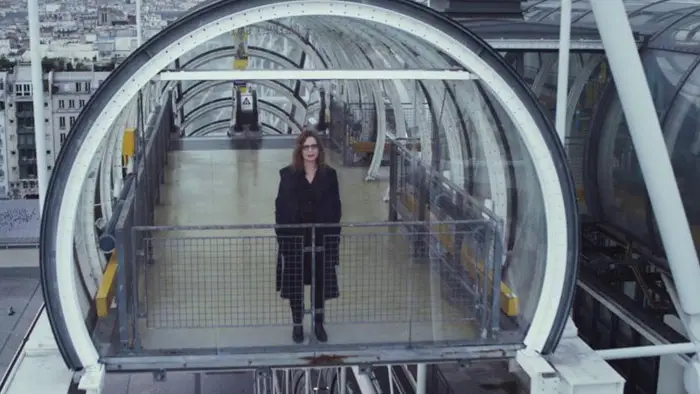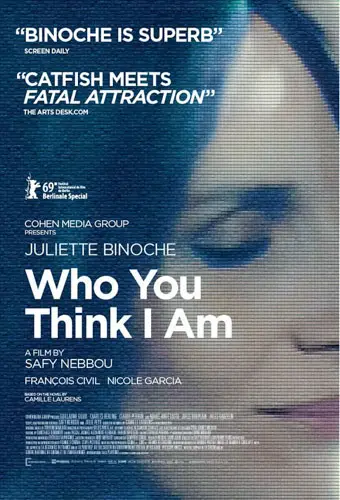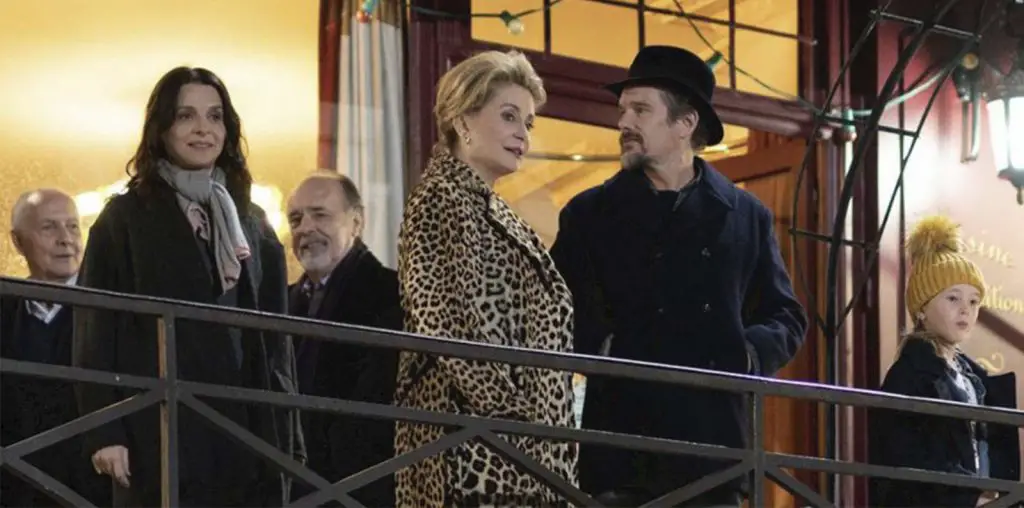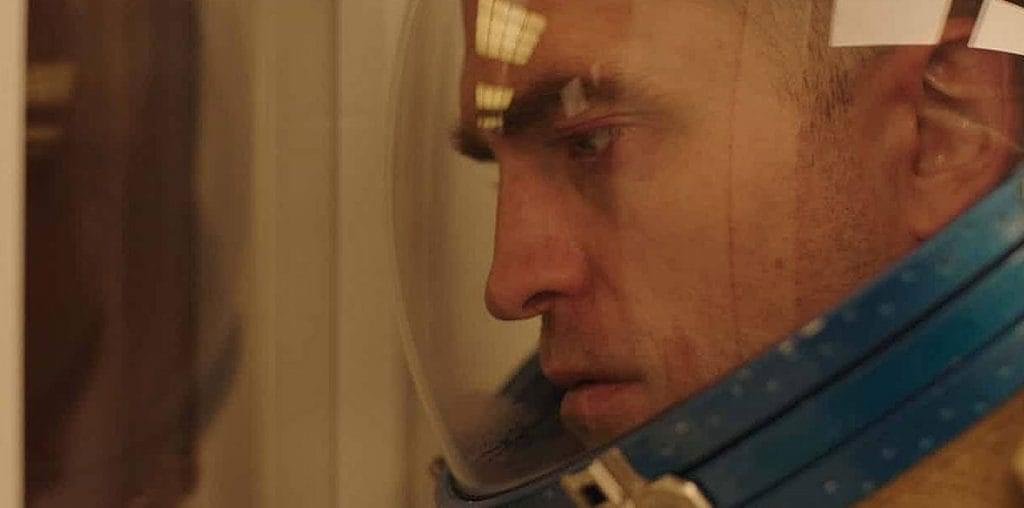
Safy Nebbou’s searing drama Who You Think I Am explores the phenomenon of catfishing from a wildly original perspective: that of a middle-aged female divorcee. She probably isn’t even aware of the term “catfishing.” Her increasingly desperate, psychotic actions are spawned by a fear of abandonment, the encroaching proximity of death, and a social-media-driven society. You may think you know what to expect from Nebbou’s gem, but as it unfolds the tragic, hilarious, deeply cynical and oddly uplifting film proves to be as multidimensional and expectations-defying as its formidable protagonist.
Juliette Binoche embodies Claire, a 50-year-old Parisian college professor, dating a much younger photographer, Ludo (Guillaume Gouix), in the wake of a painful divorce. Ludo enjoys “taking pleasure with [Claire]” but not spending any meaningful time with her. Alone and alienated, she creates a fake Facebook profile – using her niece’s name and images – and starts befriending people to ultimately get to Ludo’s apprentice, the hunky Alex (François Civil).
When they chat, Claire becomes Clara, a beautiful 24-year-old fashion intern and graceful ballet dancer. She spirals deeper into the pixelated abyss, the two identities morphing; her world revolves solely around that little chatbox on the bottom-right corner of her Facebook account. When Alex returns from a trip to Goa, he can’t handle the secrecy anymore and demands to see Claire. Darker shades streak the narrative before it unexpectedly unfurls, questioning a what if scenario that’s as moving and memorable as anything I’ve seen since the finale to Spike Lee’s 25th Hour.

“When they chat, Claire becomes Clara, a beautiful 24-year-old fashion intern and graceful ballet dancer.”
There’s also the subplot involving Claire divulging it all to her psychiatrist, Dr. Catherine (Nicole Garcia). The subtle interplay between the two great actors, the way it slyly defies the conventional “at the shrink” scene – especially when Claire questions her doctor (“Are you aroused?”) – would be arguably enough to sustain an entire narrative, but there’s so much more here to chew on.
Who You Think I Am examines perception vs reality; the destructive and healing qualities of social media; how honesty, identity and trust are filtered through the prism of social media; our helplessness against the merciless passing of time; the current generational gap (from intimately personal, sociopolitical, and technological perspectives); and the stigma of women dating younger men vs the general acceptance of men dating younger women. Only it expands upon that last point, making its predatory-yet-relatable protagonist a female, who tormented heart leads her to perhaps the only outcome this world has to offer her.
Binoche, as usual, is radiant, carrying the film through its tonally and morally trickier sequences with the confidence of a true stalwart. Her elegance and poise, her sensuality, her visceral heartbreak come through in every moment. Whether googling “Insta” in panic, listening to Alex’s voice in her headphones as the world goes mute around her, dancing at a party in ecstasy, or having phone sex in a car, Binoche makes us care for the morally ambiguous (anti) hero, because we grow to understand her motivations.
Nebbou paints the world in stark, cold greys and blues, reflecting Claire’s state of mind and accentuating the wisps of warmth when they breeze by. I love the shot of Claire standing in a train station, in front of Alex – only he sees right through her, eyes searching for an ideal he’s (rightfully) imagined. “We float in the virtual. Now we’re the spider, now we’re the gnat,” a character states. Who You Think I Am serves as direct proof that what you see is most definitely not what you get. It’s one of the best films of the year.

"…one of the best films of the year."



Thanks for finally talking about >Who You Think I Am | Film Threat <Loved it!